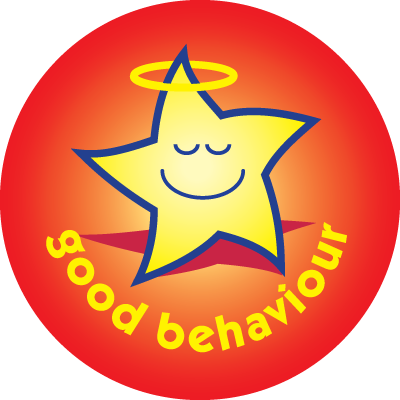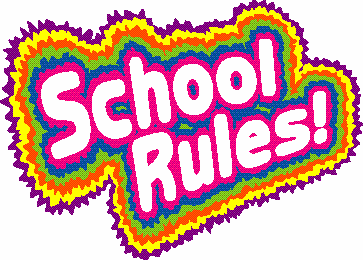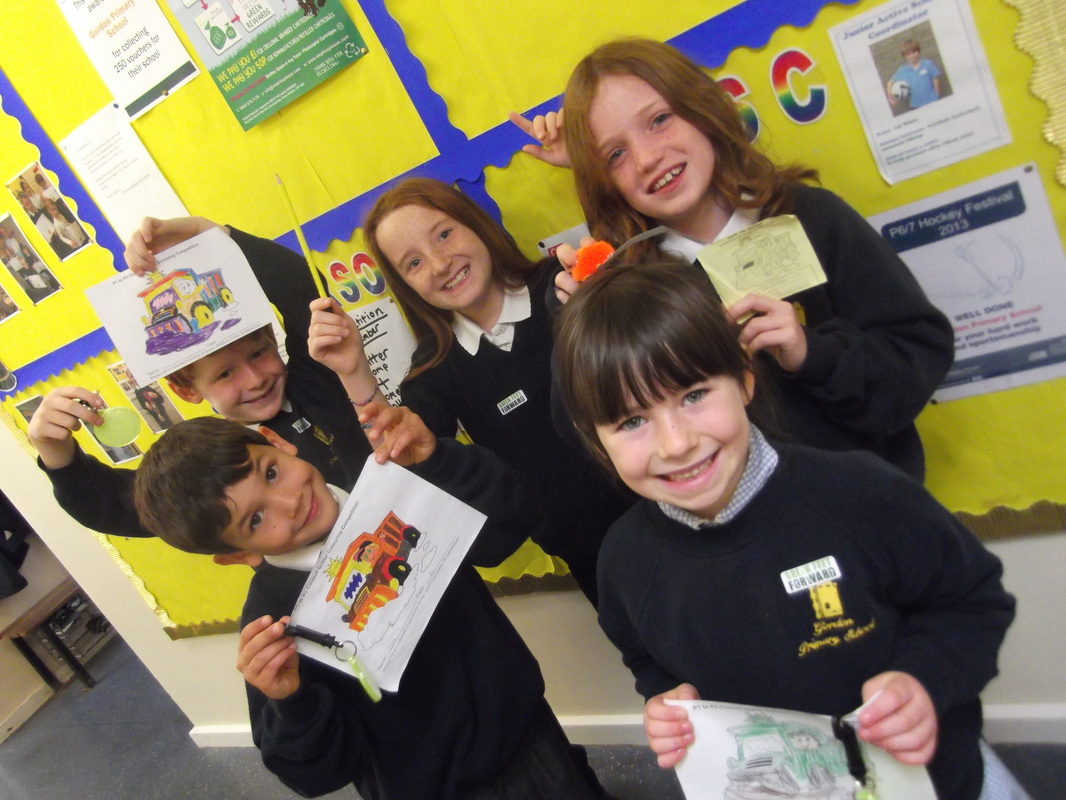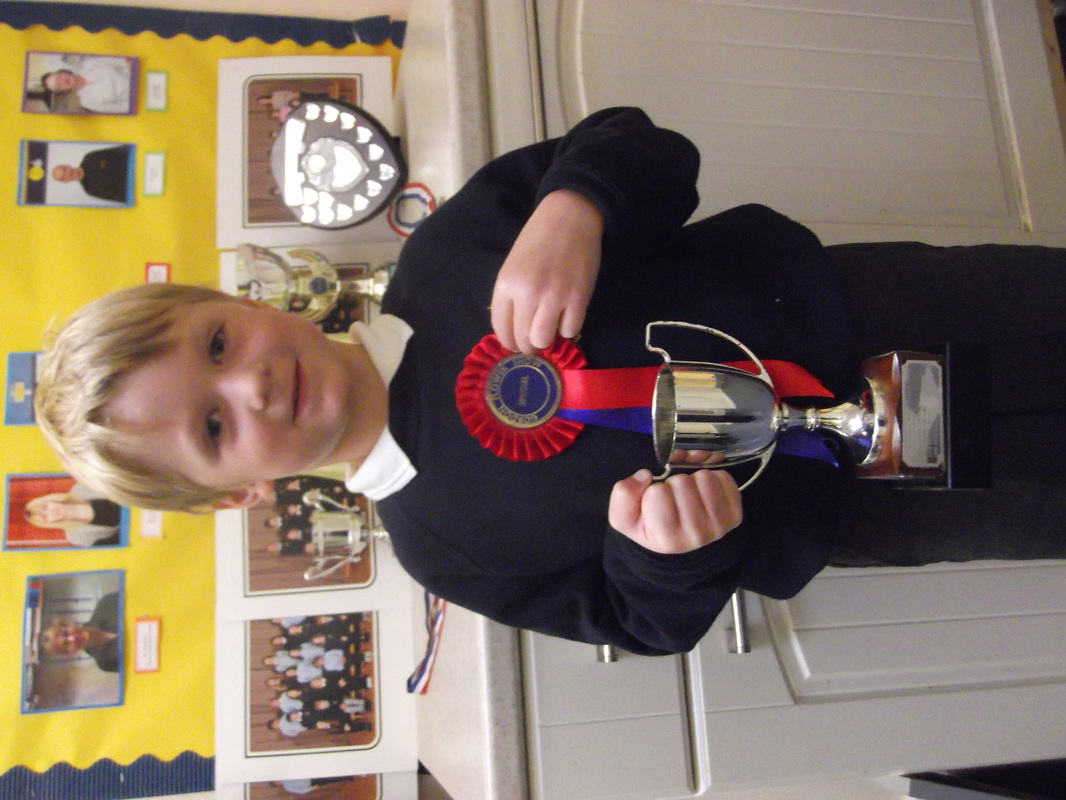|
It is our aim at all times to support and improve the
behaviour of all the children under our care. To do so we acknowledge the
important part that parents play in supporting the school to achieve our aim.
Below is a copy of our current behaviour policy, although pupils, parents and staff are currently working together to review and enhance our existing practice with regards to promoting positive behaviour. We aim encourage
How can we achieve our aims? Everyone in the school community working together;
|
Learning
and Teaching
There is a very strong relationship between behaviour and learning, children learn better in an ordered and positive environment. Equally, children who are stimulated and engaged in their learning through high quality, effective teaching, and children who have their progress and achievements recognised will feel valued and motivated to achieve more.
Within our learning programmes and in class activities, including circle time, we teach children:
There is a very strong relationship between behaviour and learning, children learn better in an ordered and positive environment. Equally, children who are stimulated and engaged in their learning through high quality, effective teaching, and children who have their progress and achievements recognised will feel valued and motivated to achieve more.
Within our learning programmes and in class activities, including circle time, we teach children:
- responsible behaviour and that their feelings and reactions can be affected by what is happening within and around individuals
- relationships with others and that friendships, caring and respect for self and others are important in maintaining positive relationships
- responsible citizenship, including opportunities to discuss issues and views and influence positive change in the school.
|
Rules
A key element in promoting positive behaviour is the formation of a small number if positively worded rules which are explicitly taught and consistently applied and reinforced both routinely and in response to specific behaviours. The following rules are set out around the school, with changes to the wording to suit the age of the pupils.
To support children in following the rules, we have taught procedures for moving around the school, lining up, organising of belongings etc. This gives children a clear understanding of what is expected of them. |
|
Rewards
In order for this to work most effectively, teachers place a strong emphasis on positive behaviour by consistently giving praise and recognition when pupils follow the rules and routines. Where a child is not following the rules, the most effective redirection comes from the teacher highlighting the example of those children who are behaving well appropriately. If pupils follow the rules, as well as being given verbal praise, each class will have a wide range of rewards to focus on positive behaviours which will be agreed and chosen with the children and will include:
Children are also encouraged to work as a group or table to gain points or tokens which are “banked” towards a progressive set of group or class rewards. For example, the table gaining the most points in a week may be awarded a particular privilege such as extra break, using special cushions etc. Likewise a class may agree on targets and rewards for all the children to work together to achieve. This may be linked to a topic or theme and result in a trip out or a particular activity in school for the class. Further rewards will also be given for effort in work and personal organisation, separately from the above |
|
Consequences
We recognise that there are many reasons why children may experience difficulties behaving in an appropriate way. If a child is experiencing difficulties, we will always speak to the child and parents to find out if there is a problem and to identify how we can work together to support and guide the child. Usually this is enough to help the child back on track; however, if a child chooses not to follow the rules, there is a need for a clear set of sanctions which will reinforce to pupils that there is a consequence to their behaviour. In the Early Years, the focus is always on teaching appropriate behaviours and any consequence is visual and may involve moving names onto different coloured traffic lights. For older children the consequences are:
Any violent incidents will immediately be dealt with by sanction 3 or 4. The tracking sheet is not a sanction, but is a recording tool which helps teachers to identify patterns of behaviour and low level disruption to support the overall good order. |
The Playground
In order to ensure the children’s safety and to help with any difficulties, Scottish Borders Council employs a playground supervisor during all breaks.
The playground supervisor is in the playground from 08:30am to 09:00am. Children should not be in the playground before 08:30 as there is no supervision prior to this time.
The same school rules apply during break. The playground supervisors deal with minor incidents in an appropriate manner and any major incidents will be reported to and dealt with appropriately by the management team.
These breaks can be influential and important in the child’s school day. It is a time to play with others, to form friendships, to work in teams, to exert self discipline and be responsible towards others. The children can always share and suggestions, stresses and concerns about the playground to a member of staff, during circle time in class, or to the Pupil Council.
Complaints Procedure
We realise that we won’t always get things right and we welcome feedback to help us to improve. If you are unhappy about something, this guidance is intended to support you in dealing with it:
The Starting Point
What are you unhappy about? What do you believe is wrong? What do you think can be done to put it right?
Please take time to think about what you are complaining about specifically.
It is important to remember that co-operation between school and home will help.
Sharing the problem
You may first wish to write or telephone outlining your complaint.
This will allow the classroom teacher or a member of the management team time to investigate the complaint.
Solving the problem
Once the investigation has taken place, the member of staff dealing with the complaint will contact you to arrange an appointment to discuss the complaint. A solution may be suggested with agreement to review the situation after a set time.
Dissatisfaction with the solution
If you are totally dissatisfied with the school’s response, please make it clear to the member of staff dealing with the complaint. The next step is to write to the Director of Lifelong Learning and ask for a meeting.
The Final Step
If you are still dissatisfied with the response, please make it clear. The next step is to approach your councillor and ask for their help, they will be able to guide you through The Local Authority Complaint procedure.
Things not to do;
Do not raise the complaint through the Parent Council in the first instance. They will recommend you use the Complaint’s procedure and contact the school directly to have the issue dealt with.
Do not allow your problem or complaint to become a community issue with a wide audience; you and your child deserve better than that; remember if we don’t know about something we can’t help.
Out of School Incidents
The school has no authority to deal directly with out of school incidents. However, we may explore incidents and implement support procedures if required to minimise the negative impact on learning within school.
In order to ensure the children’s safety and to help with any difficulties, Scottish Borders Council employs a playground supervisor during all breaks.
The playground supervisor is in the playground from 08:30am to 09:00am. Children should not be in the playground before 08:30 as there is no supervision prior to this time.
The same school rules apply during break. The playground supervisors deal with minor incidents in an appropriate manner and any major incidents will be reported to and dealt with appropriately by the management team.
These breaks can be influential and important in the child’s school day. It is a time to play with others, to form friendships, to work in teams, to exert self discipline and be responsible towards others. The children can always share and suggestions, stresses and concerns about the playground to a member of staff, during circle time in class, or to the Pupil Council.
Complaints Procedure
We realise that we won’t always get things right and we welcome feedback to help us to improve. If you are unhappy about something, this guidance is intended to support you in dealing with it:
The Starting Point
What are you unhappy about? What do you believe is wrong? What do you think can be done to put it right?
Please take time to think about what you are complaining about specifically.
It is important to remember that co-operation between school and home will help.
Sharing the problem
You may first wish to write or telephone outlining your complaint.
This will allow the classroom teacher or a member of the management team time to investigate the complaint.
Solving the problem
Once the investigation has taken place, the member of staff dealing with the complaint will contact you to arrange an appointment to discuss the complaint. A solution may be suggested with agreement to review the situation after a set time.
Dissatisfaction with the solution
If you are totally dissatisfied with the school’s response, please make it clear to the member of staff dealing with the complaint. The next step is to write to the Director of Lifelong Learning and ask for a meeting.
The Final Step
If you are still dissatisfied with the response, please make it clear. The next step is to approach your councillor and ask for their help, they will be able to guide you through The Local Authority Complaint procedure.
Things not to do;
Do not raise the complaint through the Parent Council in the first instance. They will recommend you use the Complaint’s procedure and contact the school directly to have the issue dealt with.
Do not allow your problem or complaint to become a community issue with a wide audience; you and your child deserve better than that; remember if we don’t know about something we can’t help.
Out of School Incidents
The school has no authority to deal directly with out of school incidents. However, we may explore incidents and implement support procedures if required to minimise the negative impact on learning within school.






